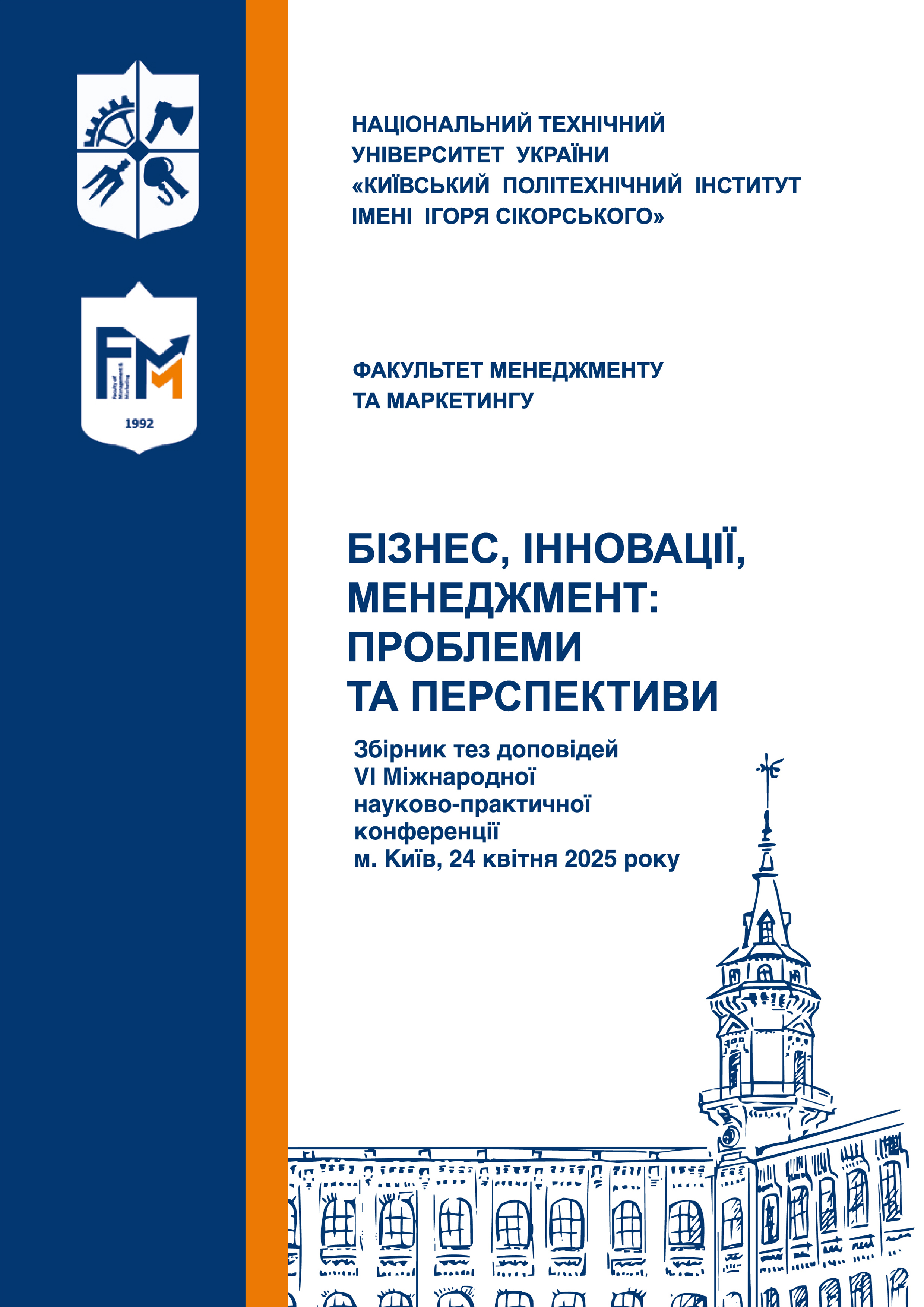COMPETITIVE INTELLIGENCE IN THE CONDITIONS OF DIGITALIZATION
Анотація
The environment in which enterprises currently operate is very dynamic and characterized by rapid changes and high uncertainty. This applies to both the level of individual countries and the global market. The ability to quickly make decisions based on information about the market, consumers, and competitors is essential for business entities. It is necessary to monitor changes in market sentiment, the emergence of new technologies, changes in key macro indicators, and the behavior of consumers and competitors. Economic and trade wars require increased business efforts to implement and improve enterprise intelligence activities. Competitive intelligence is a relatively new phenomenon. Thus, the first thorough work on competitive intelligence is considered to be Michael Porter's book "Competitive Strategy: Technologies (Methods) of Industry and Competitor Analysis", which was first published in 1980 [1, p. 10]. However, it can be said that the foundations of competitive intelligence were laid as early as the late 18th century when the Rothschild brothers used data from informants [1, pp. 12-13].
Today, competitive intelligence is considered both a marketing tool and an independent activity – as a set of measures that determine the permanent process of collecting, accumulating, and analyzing data that characterizes the internal and external environment of the enterprise, using legal methods for senior management to optimize management decisions [2, p. 54].
Considering competitive intelligence as a set of functions for collecting, processing, storing, and processing data, it is worth noting the significant role of digital technologies. The growing amount of information, which is considered a competitive advantage if possessed, which constantly arises in the surrounding environment and rapidly changes and loses value, requires specific tools that will allow it to be quickly obtained and analyzed.
Companies must monitor technological trends, economic and social indicators, and events that can significantly affect the market.
Companies' entry into the information space (websites, social networks) requires constant monitoring. Thus, for competitive intelligence, reviews (both about your company and a competitor), vacancies, news, price lists, financial and management reporting, and publications are valuable. It is impossible to monitor such a large amount of data “manually”, but it is necessary. Often, small information messages, collected into a holistic picture, can tell about competitors’ plans, weaknesses, and new opportunities that arise for them. Today, the Internet is the primary source of data for competitive intelligence.
However, this also works in the opposite direction - companies are becoming more "open" to analysis. Access to online analytical systems is a relatively inexpensive (compared to the cost of services provided by companies that conduct analytical research on demand) way to obtain data on companies' financial and market indicators. On the one hand, this simplifies the preliminary analysis of the counterparty and reduces risks; on the other hand, it ensures that the company's data is open to competitors.
Digitalization in this context creates both opportunities and threats. The use of monitoring tools, data analysis, and their accumulation and storage (in particular, cloud services) is necessary for effective competitive intelligence in the era of digitalization. However, applications and devices are, to some extent, “weak spots” for competitors using industrial espionage or compromising methods. As the level of digitalization of a company increases, there is also a need to increase efforts in counterintelligence, information security, and cybersecurity.
Thus, digitalization can be considered both as a tool, as an opportunity, and as a source of risk, but companies should, in any case, consider it as a factor that ensures the formation of a competitive advantage.
Посилання
Kohut Y.I. Competitive Intelligence and Business Security: A Practical Guide. Kyiv: Consulting Company "SIDCON"; VD Dakor, 2021. 318 p.
Horbal N. I., Smereka L. V, Mykytyn O. Z. Competitive intelligence: essence, role, development prospects. Management and Entrepreneurship in Ukraine: Stages of Formation and Problems of Development. 2019. Т. 1. №.2. С.53-60.

